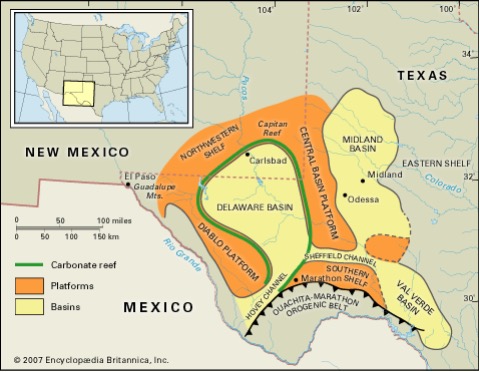
Project Location
The produced water solution used during testing and the competition was a synthetic sample of produced water based on water characteristics of produced water from the Delaware shale play. The Delaware Basin is a basin known for its large oil fields and is located in West Texas and southern New Mexico.